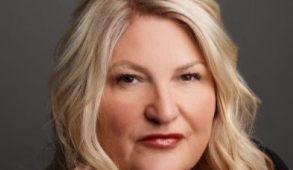New NHS England team to target procurement variation

The NHS spends more than £35bn commercially across more than 80,000 suppliers and multiple categories. And there are more than 4,000 procurement professionals doing the buying, working at national, regional and local levels along with supporting partners such as NHS Supply Chain.
‘But there are significant challenges with the current way we have been executing commercial capability in the NHS,’ she told an NHS England board meeting this week. ‘There is currently no centrally driven NHS commercial strategy that binds all these NHS commercial communities together, that drives collaboration across commercial teams, that leverages that collective buying power or provides a clear consistent guideline on how to contract work from a supplier perspective with the NHS.
‘This has resulted in unwarranted variation in commercial arrangements with suppliers, missed opportunities to drive additional value, leverage scale and harness collective buying power,’ she added. Importantly this meant the NHS was not leading and shaping the market in the way it should be given its size.
Ms Rock said that the NHS had a lot of strategic suppliers with more than 100 contracts for the same product, at different pricing and with different service level agreements. ‘This does not make any commercial sense at all,’ she said.
In response, the new central commercial function (CCF) will provide seven services to support all NHS commercial activity, building on the foundations laid by the NHS England procurement target operating model. Details of these services were included in a paper presented to the NHS England board and cover: commercial capability; people and community; governance and assurance; technology and data; commercial strategies; sustainability and innovation; and sourcing and management.
For example, in terms of technology and data, the function will roll out technology to provide greater visibility of spend and build in-house data analytics to provide insights into how performance can be improved. The use of a common platform will give the NHS oversight of all its commercial activities at the year-end. And as part of its commercial capability service, it will create a single buying portal giving procurement teams clarity on where and how to buy goods and services.
The function will also have a major focus on the workforce, supporting the development of qualified, accredited teams with career pathways that provide an element of future-proofing in terms of skills and knowledge within commercial and procurement teams.
Ms Rock said the function would also be developing commercial strategies at the clinical pathway level. It has already started this work. For example, it has looked at how goods are being bought at every stage of the cardio pathway. ‘The result was quite phenomenal,’ she said. ‘It was an immediate £40m saving because we reduced variation and waste and we managed to mitigate supply chain risk and availability. So when you have a collective category in place it makes a significant difference.’
Ms Rock stressed that the intention was to understand where the centre can add value and support local and regional teams. While the function is expected to have full operating capability in place by December 2024, it has agreed a number of deliverables by April next year. These include enabling NHS commercial teams to access a route map to identify where to buy any good or service and having fully funded e-commercial licences available to all NHS providers and integrated care boards, with all commercial pipeline data available in the single e-commerce system.
NHS England board paper
Related content
We are excited to bring you a fun packed Eastern Branch Conference in 2025 over three days.
This event is for those that will benefit from an overview of costing in the NHS or those new to costing and will cover why we cost and the processes.